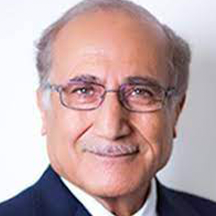We need a serious strategic change in our economic model or paradigm in Jordan. So much emphasis has been put on knowledge economy, but with very modest results.
His Majesty King Abdullah formed the “Economic Policies Council” which had started with effectiveness and steadfastness under his chairmanship. Its membership was made up mostly of private and public sector representatives, economic experts and entrepreneurs with the passage of time, while the prime minister headed most of the sessions. Eventually, this Royal council produced more measures than policies.
In Jordan we need an out-of-the-box approach to realise the Royal vision of a more sustainable, clean and reliable economy which produces high quality goods and services.
This would require the reshaping of the “Economic Policies Council” into a productive policy-suggestion body. It would have one purpose, and one purpose only, and that is to develop strategies and policies that make Jordan a knowledge economy. We need to produce goods and services which cater for the international market, and not only to neighbouring markets.
With the enmeshment of knowledge into the production process, we can improve the value-added of goods and services produced in Jordan. Our terms of trade with the rest of the world will automatically improve.
We should learn from the lessons of a near past and a painful present. Jordan is actually in a state of besiege. Our economy is mostly a collateral damage of the existing wars, uprisings and even economic reforms in neighbouring countries. It shows us beyond any doubt that we are, as things stand, a deeply vulnerable economy.
We have been hugely penalised as a result of putting our eggs in one basket. This is mostly evident in three examples.
Between the 40s and the 70s of the last century, we relied heavily on Saudi oil pumped through Topline pipe project. When the Iran-Iraq war broke out in 1980, we began importing some of our oil from Iraq. After the 1991 Gulf war, the supply of the Saudi oil was interrupted and Jordan started importing oil at lower prices from Iraq. In 2003, after the Second Gulf war and the occupation of Iraq, we began to diversify our electricity generation to gas imported from Egypt. After the "Arab Spring", we shifted to using diesel and heavy fuel. The bill so far has exceeded JD6 billion.
The other example is the fluctuating demand on our phosphates. Selling it raw or in phosphoric acid forms does not remove the vulnerability. The same applies to potash but at less risk. We need to come up with more sophisticated industries to face up to the competition stemming mainly from Morocco and soon from Saudi Arabia.
The last example to be cited is our agricultural exports. There is an ample opportunity to diversify, move to organic products, produce herbs some of which are special to Jordan and last but not least create high-quality agro-industry.
The private sector is way ahead of the government in using digital economy. There is more showmanship than essence in the e-government programme. Investment policies are not enticing sufficent investments.
Health, education and transport sectors can benefit immensely from introducing knowledge to them.
We do not lack talent and skilled people to make this venture viable and profitable.
The “Economic Policies Council” needs a complete revamping in structure and objectives. We need people whose business is IT. Dr Talal Abu Ghazaleh has been calling for this shift in our economic strategy. It is about time to respond.
